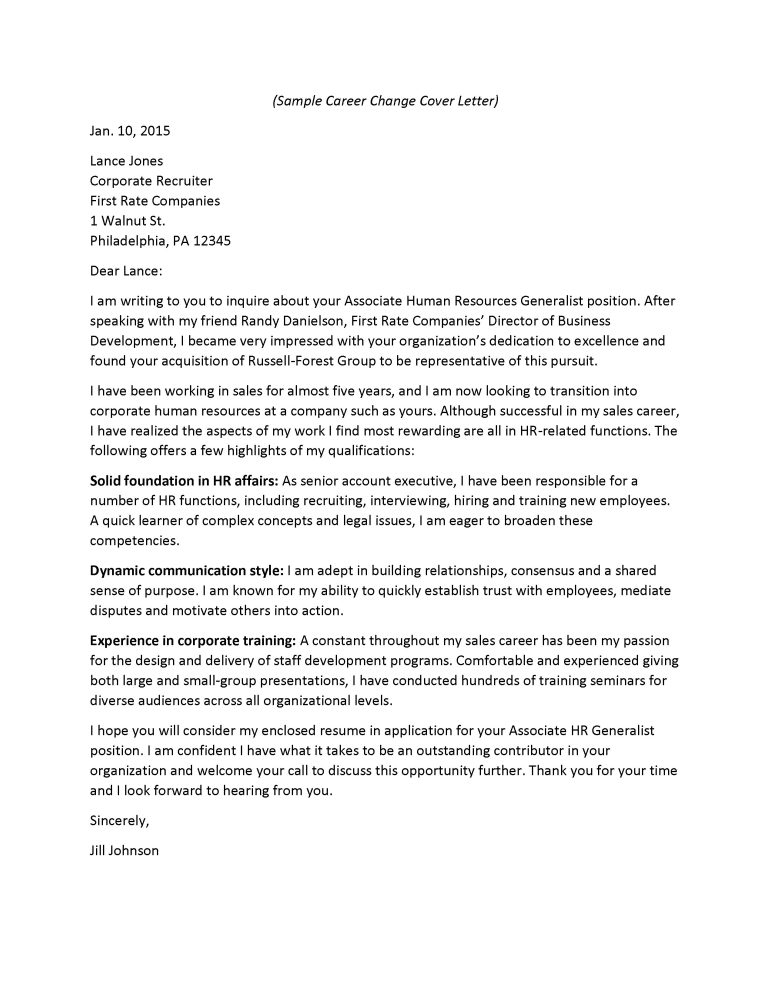Even if a cover letter is not explicitly required by an employer, it is vital and should always be a part of your job applications. A cover letter introduces you, demonstrates you have invested time and energy into researching the organization, highlights a few of your experiences or skills, and requests an opportunity to meet personally with the potential employer. It refers to your resume without repeating the exact same information.
Cover letters for career changers are essentially the same as writing any other cover letter. A career changer’s cover letter should still demonstrate that the applicant has researched the company, meets the qualifications of the job and aligns with the organization. The biggest difference between a career changer’s cover letter and any other resume is the main body of the letter because the body is the place where the applicant sells their qualifications.
There is no one way to write a cover letter, but if you are a career changer there are some key things you should consider:
- How will you address the elephant in the room? A recruiter will notice that you are changing careers, so you should address it. You can do this explicitly or more subtly.
- Explicitly: “While my experience is predominantly in the IT space, I believe my ability to analyze problems and strategically identify solutions will translate well into your Operations Manager position.”
- Subtly: “My career in IT has given me the ability to analyze problems and strategically identify solutions. I believe this has prepared me well for your Operations Manager role.”
- Do you meet the minimum qualifications? If the answer is yes, be sure you use the same keywords from the job description to inform them of this fact. If the answer is no, ask yourself whether your other experience could make up for it in the hiring team’s eyes; then spell this out for them in the cover letter.
- Your transferable skills should be on display. Your resume is the appropriate place to provide many of these transferable skills, but the cover letter is a chance to explain them more in-depth.
- Make sure that you do not simply restate what’s on your resume. Instead, draw conclusions from what your resume shows and point out areas of unique “fit”. The cover letter should bring up relevant, employment related issues that cannot be easily expressed on the resume.
- Your cover letter should be results-oriented. Just like resume writing, cover letter writing is marketing. You are marketing yourself to the organization, so be sure to sell your achievements and not just tell them your responsibilities.
- How can I best convey this information? For some it will be the traditional paragraph format, others it will be in bullet-points or a combination of both. Paragraphs often tell a story whereas bullet points highlight key accomplishments or skills.
- Tailor your cover letter for every organization. Your key points may be relatively unchanged, but do enough research that you can say something specific and unique in each letter.
- Use assertive language. This demonstrates confidence and an ability to take initiative. However, be careful! There is a fine line between confident and cocky.





